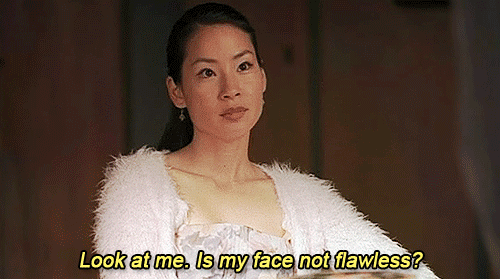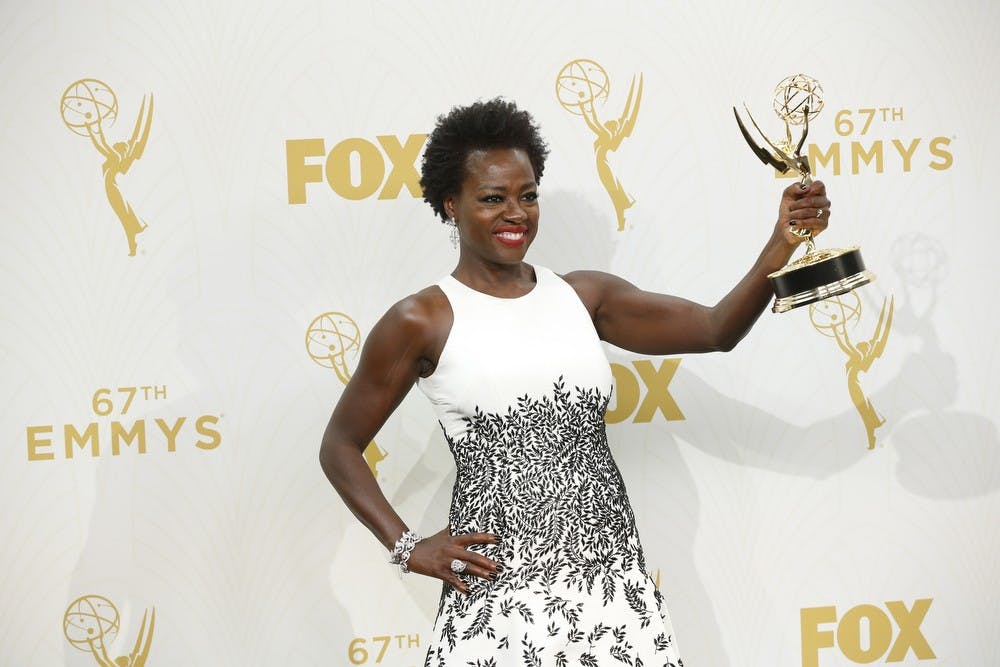Sunday night, Viola Davis was the first black woman to be awarded the Emmy for "Best Actress in a Drama," and her speech was moving. On the verge of tears, she makes a statement that is not only true in the industry of film and TV but in media in general: there is a lack of opportunity and visibility for women of color.
Viola Davis made Emmy history. However, some think the industry still has a way to go to address lack of diversity. http://t.co/dcCLy9Czt0
— AJ+ (@ajplus) September 22, 2015
In 2015, Davis was the first black woman to win an Emmy for "Best Actress in a Drama." In 2001, Halle Berry was the first black woman to win an Oscar for "Best Actress," and there have yet to be any Latina or Asian American women winning any Academy Awards for leading roles. Though we are so supportive of “equality," there is still a huge discrepancy in the opportunities for women of color in this industry.
One of the biggest ways this can be seen is the whitewashing of the characters in films and TV. There was recent uproar with Emma Stone being cast in "Aloha" as Allison Ng, a woman of Hawaiian and Chinese decent, when Stone is neither Hawaiian nor Chinese, yet there are plenty of Asian American actresses that are capable of playing the part. Not only are there limited roles that are for women of color, but rarely are women of color even seen in those roles.
Now, why is that? It is definitely related to our Eurocentric idea of beauty in America, and the idea that you need to have a certain kind of eyes and hair and completion in order to be beautiful. Some women of color fit perfectly into that beauty standard, and there becomes the problem of limitations within roles. Age-old ideologies about women of color continue to present themselves in the roles available, creating typecasts that are hard to escape.
Viola Davis, the first black woman to win for Lead Actress Drama in 67 years of Emmy history. give woc the recognition they deserve.
— georgina (@monetgrrl) September 21, 2015
Waves are beginning to be made, with shows like "Empire" and "Scandal" starring women of color as their leading ladies. Even Lupita Nyong’o taking center stage at the 2014 Oscars allowed for an expansion for what is means to be beautiful.
Despite this, there is still a long way to go. Not only should there be more roles available to women of color, but these roles should stray outside stereotypes. Although I adore Sophia Vergara, she is often cast in roles as a fiery Latina in shows like "Modern Family" instead of showing the versatility that Latina women are truly capable of. Although the opportunities for women of color are slowly growing, there is still progress to be made.

Reach the columnist at ybrewste@asu.edu or follow @jbrewzki on Twitter.
Editor’s note: The opinions presented in this column are the author’s and do not imply any endorsement from The State Press or its editors.
Want to join the conversation? Send an email to opiniondesk.statepress@gmail.com. Keep letters under 300 words and be sure to include your university affiliation. Anonymity will not be granted.
Like The State Press on Facebook and follow @statepress on Twitter.




